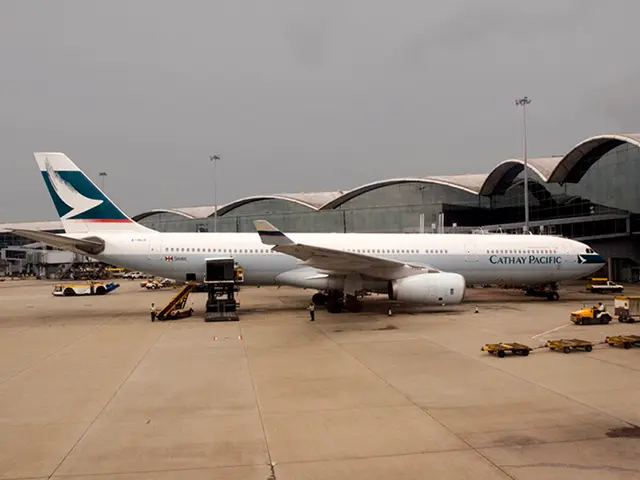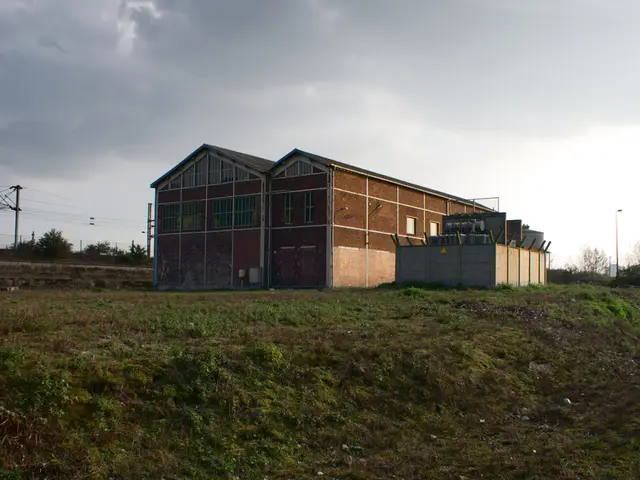Merz's Migration Policy Stirs Controversy, Tusk Slams Tightened Border Controls
Merz's migratory path does not include Tusk.
Venture into the realm of politics as Friedrich Merz, Germany's new Federal Chancellor, steps into office on the heels of a turmoil-filled journey to Paris and Warsaw. Yet, the hearty welcome from Polish Prime Minister Donald Tusk quickly turned frosty. The bone of contention? Merz's proposed immigration policy.
In the face of Merz's inaugural visit to Warsaw, Tusk served up a sharp rebuke to Merz's intended migration policy. "Germany will open its borders to whomever it pleases. Poland, on the other hand, will only admit those we deem suitable," Tusk stated. It's imperative to avoid giving the impression that Germany is shipping specific migrant groups to Poland, Tusk added.
The Polish prime minister specifically called out the "Dublin center" established near the Polish border in Eisenhuettenstadt, meant to streamline the return of asylum seekers to other EU nations. Pertinent migrant transfers, particularly to Poland, are slated to take place there.
Tusk also voiced his opposition to Merz's plan for intensified border controls, declaring, "If someone enforces border controls on Poland, we will respond in kind. Such measures won't make sense in the long run."
Collaboration in Fortifying External Borders
Tusk brought attention to Poland's substantive role in safeguarding the EU's external borders. The Polish government has accused the regime of Alexander Lukashenko, Belarus's ruler, of intentionally pushing migrants from crisis-stricken regions towards the EU's eastern frontier. Tusk believes that the new federal government should work in harmony with Poland to bolster the EU's external border security.
Germany and Poland at the Crossroads
Merz promised Poland his support in defending the EU's external borders, stating, "We believe it's our duty to fortify these European external borders more effectively using German resources and reinforcement." He is optimistic about finding viable solutions to this end. Concurrently, Merz advocated for a unified European approach to limit illegal migration.
On this note, Merz defended the proposed strengthened border checks while remaining adherent to the Schengen rules, granting a passport-free passage within the EU. The freedom of movement among people is an essential pillar for employment and prosperity, embodying the shared interest of the EU.
Sources: ntv.de, jog/dpa
- Poland
- Germany
- Friedrich Merz
- Migration
- Migrants
- Immigration
- Refugees
- Refugee policy
- EU
Insights:
Merz's incoming government, supported by Alexander Dobrindt as the future Interior Minister, has committed to tightening Germany's immigration policies in an effort to reduce illegal immigration[2][5]. However, other EU members have expressed concerns about the practicality of such unilateral measures, warning that stricter border controls may disrupt day-to-day border traffic and potentially impact vital economic and social exchanges[1][2]. Internally, Poland's Małopolska province has refused to establish EU-funded migrant integration centers, signaling internal opposition to certain aspects of migration policy within Poland itself[3]. Overall, the core dispute centers on Merz's move to strengthen border controls unilaterally, while Poland views such measures as antagonistic to European cooperation and the proper functioning of the Schengen zone, while Germany frames the measures as a necessary response to migration flows and security concerns[1][2][5].
- The incoming German government led by Friedrich Merz, with Alexander Dobrindt as the future Interior Minister, intends to tighten immigration policies to reduce illegal immigration within Germany.
- Poland has expressed concerns about the implications of stricter German border controls, warning that they could disrupt day-to-day border traffic and potentially impact vital economic and social exchanges.
- Internally, Poland's Małopolska province has refused to establish EU-funded migrant integration centers, indicating internal opposition to certain aspects of migration policy within Poland.
- Poland's Prime Minister Donald Tusk criticized Merz's proposed migration policy, particularly his plan for intensified border controls, stating that such measures won't make sense in the long run.
- Tusk advocated for collaboration between Germany and Poland in fortifying the EU's external borders, citing the need to handle ongoing migrant transfers and address the growing threat of migrants being pushed towards the EU’s eastern frontier by the regime of Alexander Lukashenko in Belarus.







